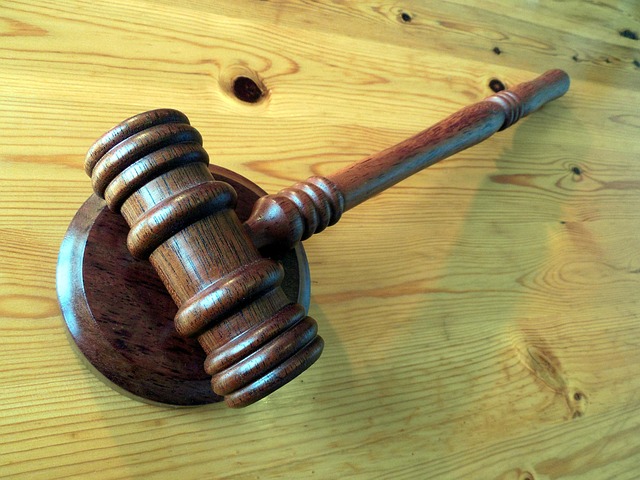The text introduces the concept of criminal law cases, distinguishing them from civil lawsuits by focusing on societal crimes. It highlights the significance of the Administrative Hearings Process Guide as a structured framework for resolving complex offenses like white-collar crimes. This process offers quicker dispositions and cost savings while emphasizing evidence presentation and argumentation in a controlled setting. The guide provides step-by-step instructions for navigating this process, including evidence gathering, legal strategy, and client communication. By demystifying the hearing dynamics, individuals and entities can strengthen their defenses and achieve favorable outcomes in criminal law cases.
“Unraveling the intricacies of criminal law cases is crucial for ensuring justice and fairness. This comprehensive article delves into the multifaceted world of criminal jurisprudence, focusing on a key component: administrative hearings. We offer an in-depth ‘Administrative Hearings Process Guide’, exploring its role in criminal procedures. From understanding the fundamentals to navigating the steps and considering best practices, this overview equips readers with knowledge to advocate effectively. By mastering these strategies, legal professionals can ensure robust defenses, ultimately upholding the integrity of the justice system.”
- Understanding Criminal Law Cases: An Overview
- The Role of Administrative Hearings in Criminal Law
- Step-by-Step Guide to Navigating the Administrative Hearings Process
- Key Considerations and Best Practices for Successful Defense Strategies
Understanding Criminal Law Cases: An Overview

Criminal law cases encompass a wide range of legal proceedings involving violations of criminal statutes and regulations. These cases differ significantly from civil lawsuits, focusing on holding individuals accountable for crimes against society rather than resolving private disputes. The administrative hearings process serves as a crucial component in many criminal law cases, providing a structured framework for investigating and adjudicating various offenses.
Understanding the intricacies of criminal law requires delving into both the general criminal defense strategies employed by attorneys and the specific legal procedures that unfold during administrative hearings across the country. For his clients facing these charges, having an adept advocate who can navigate these complex waters is paramount. This guide aims to offer a concise overview, shedding light on key aspects of the criminal law landscape, with a particular emphasis on the Administrative Hearings Process as a vital tool in administering justice.
The Role of Administrative Hearings in Criminal Law

Administrative hearings play a crucial role in Criminal Law, serving as a vital process guide for resolving cases outside of traditional courtroom settings. These hearings are particularly valuable in addressing complex matters, especially in the realm of white collar and economic crimes, where an unprecedented track record of successful resolutions has been achieved. The process involves a structured yet flexible framework, allowing both accusers and defendants to present their cases before an impartial decision-maker.
This alternative approach offers several advantages, including faster resolution times, cost-effectiveness, and a focus on the specific facts of each case. It’s particularly beneficial for general criminal defense strategies, as it provides an opportunity to challenge evidence and arguments in a more controlled environment. This method has proven effective across various jurisdictions, demonstrating its value in navigating the intricacies of Criminal Law.
Step-by-Step Guide to Navigating the Administrative Hearings Process

Navigating the Administrative Hearings Process can be complex, but with a structured approach, individuals and entities accused of white collar and economic crimes can mount a compelling defense. Here’s a step-by-step guide to help you understand this critical process.
First, it’s essential to acknowledge that each administrative hearing is unique, with its own set of regulations and procedures. Second, gather all relevant documents and evidence that support your case—this could be key to winning challenging defense verdicts across the country. Next, carefully review the charges against you and identify any potential legal loopholes or weaknesses in the prosecution’s case. During the hearing, present your arguments logically, citing specific laws or regulations that support your position. Remember, clarity and organization are crucial to making a persuasive case. Finally, remain respectful and professional throughout the process, as it reflects on your overall defense strategy.
Key Considerations and Best Practices for Successful Defense Strategies

In crafting a successful defense strategy for criminal law cases, particularly in the context of white-collar defense and navigating the administrative hearings process, several key considerations come into play. One of the primary best practices is to develop a comprehensive understanding of the case from the outset. This involves meticulously reviewing all evidence, identifying potential weaknesses in the prosecution’s arguments, and carefully constructing a narrative that aligns with your client’s interests.
Additionally, maintaining open lines of communication with your client is paramount. Encourage them to share any relevant information or documents that could aid in building their defense. This collaborative approach ensures you are equipped to present a robust strategy, whether it involves negotiating a plea bargain, preparing for jury trials, or achieving extraordinary results through alternative dispute resolution methods, such as Administrative Hearings Process Guides.
Criminal law cases, particularly those involving administrative hearings, demand a deep understanding of legal procedures. By grasping the intricacies of this process, individuals can better navigate their rights and defenses. This article has provided an overview, highlighted the role of administrative hearings, offered a step-by-step guide, and shared key considerations for successful defense strategies. Remember that in any legal matter, seeking professional advice is crucial, making this Administrative Hearings Process Guide a valuable resource for those looking to ensure a just outcome.






